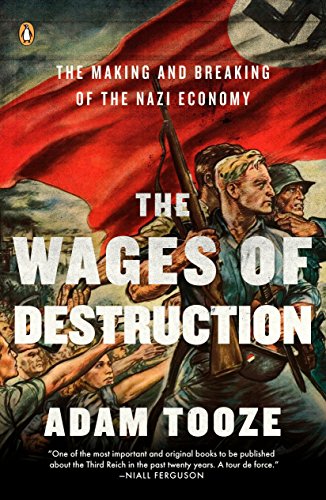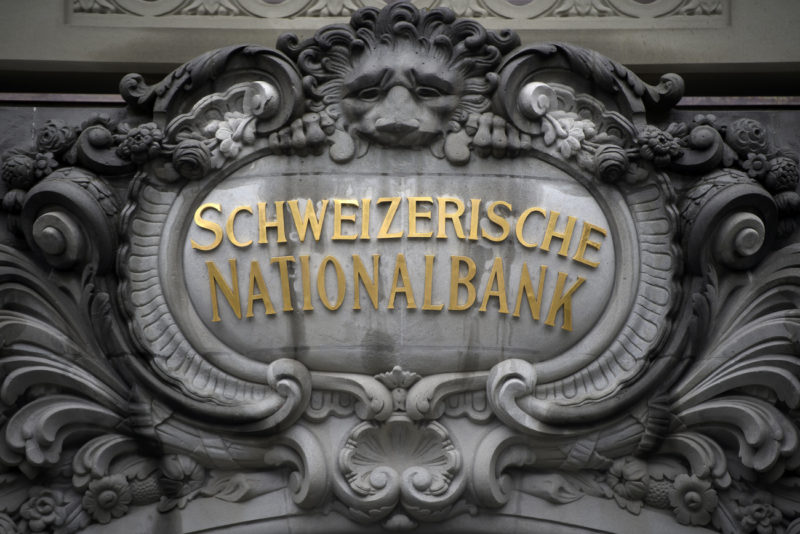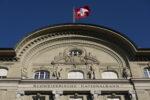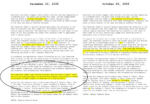Found 1,868 search results for keyword: label
Government Jobs and Part-Time Work Are Behind the Latest Jobs Gains
Last Friday’s employment report from the Bureau of Labor statistics was labeled “shockingly good” by MSNBC, and as a “blowout” report by Reuters. According to the BLS, the US economy added 254,000 jobs in September, seasonally adjusted. That’s the biggest increase in six months.Defenders of the status quo seized upon this latest number as evidence that the US economy is in great shape. Uber-establishment economist Mark Zandi, for example, declared...
Read More »
Read More »
Lausanne public transport to go all-electric by 2030
The additional investment required to decarbonise the Lausanne fleet is around CHF130 million ($152 million).
Keystone-SDA
Listen to the article
Listening the article
Toggle language selector...
Read More »
Read More »
UBS lowers growth forecasts for Swiss economy in 2025
UBS believes that the main risks lie with the eurozone, Switzerland's most important foreign trade partner.
Keystone-SDA
Listen to the article
Listening the article
Toggle language selector...
Read More »
Read More »
Hayeks buy over 14 million Swatch shares
Swatch: the Hayek family buys over 14 million shares
Keystone-SDA
Listen to the article
Listening the article
Toggle language selector...
Read More »
Read More »
The Old Right Opposed Tariffs
The Old Right was a principled band of intellectuals and activists, many of them libertarians, who fought the “industrial regimentation” of the New Deal, and were the first to note that, in America, statism and corporatism are inseparable. Despite some current claims, however, these writers ardently defended capitalism, including big business and corporations, celebrated the profit motive, and took a strict laissez-faire attitude towards...
Read More »
Read More »
Are Your Supplements Doing More HARM Than Good? – Dr. Nicole Srednicki, Alexandra Gonzalez-Ganoza
In this episode of Ultra Healthy Now, host Alexandra Gonzalez-Ganoza and Dr. Nicole Srednicki explore the supplement industry, highlighting concerns over dangerous ingredients and the importance of choosing quality supplements. They discuss misleading marketing, common additives, and the necessity for consumers to be informed about their supplement intake.
The episode also covers the impact of high-quality supplements on health and performance,...
Read More »
Read More »
Swiss watchmaking sector faces rise in unemployment
Seco: "rise in unemployment not surprising, will rise again"
Keystone-SDA
Listen to the article
Listening the article
Toggle language selector...
Read More »
Read More »
Swiss hotels on course for a record summer
Swiss hotels on course for a record summer after a good August
Keystone-SDA
Listen to the article
Listening the article
Toggle language selector...
Read More »
Read More »
Swiss retailer Galaxus to create 1,000 jobs in Germany
Galaxus, which is owned by Swiss retail giant Migros, is opening a new logistics center in Neuenburg am Rhein.
Keystone-SDA
Listen to the article
Listening the article
Toggle language selector...
Read More »
Read More »
Does This Country Need More Efficient Government?
Last month, Donald Trump announced that he intends to set up a government efficiency commission if he wins a second term. The commission would be led by tech entrepreneur Elon Musk, who would audit the entire federal government to find and eliminate inefficiencies that needlessly cost taxpayers trillions of dollars.While Austrian economists tend to be wary of the entire concept of “efficiency” in a world without perfect, universal knowledge of the...
Read More »
Read More »
America Doesn’t Need More “Efficient” Government
Last month, Donald Trump announced that he intends to set up a government efficiency commission if he wins a second term. The commission would be led by tech entrepreneur Elon Musk, who would audit the entire federal government to find and eliminate inefficiencies that needlessly cost taxpayers trillions of dollars.While Austrian economists tend to be wary of the entire concept of “efficiency” in a world without perfect, universal knowledge of the...
Read More »
Read More »
National Socialism Was Socialist
These days, supporters of President Trump and others on the right are often smeared as “fascists,” and what is meant by this is that they support the Nazis. For example, the historian Ruth Ben-Ghiat says: “To get people to lose their aversion to violence, savvy authoritarians also dehumanize their enemies. That’s what Trump is doing. Hitler used this ploy from the very start, calling Jews the ‘black parasites of the nation’ in a 1920 speech. By the...
Read More »
Read More »
Swiss state-owned technology firm accused of fraud
German aviation company accuses Ruag of balance sheet fraud
Keystone-SDA
Listen to the article
Listening the article
Toggle language selector...
Read More »
Read More »
Medicines regulators weigh hope and hype with new Alzheimer’s drugs
In Switzerland, some 156,900 people have Alzheimer’s or some other form of dementia, and this is expected to rise to 315,400 by 2050 according to the organisation Alzheimer Schweiz.
Mtv / Courtesy Everett Collection
Listen to the article
Listening the...
Read More »
Read More »
The Present Monetary System Is Heading for a Breakdown
Many economists incorrectly assume a growing economy also requires a growing money stock, assuming that economic growth gives rise to a greater demand for money. It is held that failing to increase money to facilitate increased trade will lead to a decline in prices of goods and services, destabilizing the economy and leading to an economic downturn.Some commentators believe that the lack of a flexible mechanism coordinating demand versus the money...
Read More »
Read More »
Just 22% of top Swiss managers are women
22 percent women in top management
Keystone-SDA
Listen to the article
Listening the article
Toggle language selector...
Read More »
Read More »
What is Old School Economics?
The phrase “old school economics” is often used positively or approvingly by many, but is rarely explained. What is this school and where is it located? You can be sure that it is not what is taught in most college classrooms today. It’s definitely not Keynesian or Marxist economics. But what is it?I often hear the phrase “old school economics” in response to, for example, a government bureaucrat who says we need to increase unemployment to fight...
Read More »
Read More »
Swiss SMEs do not expect AI-related job cuts
Swiss SMEs do not expect AI-related job cuts
Keystone-SDA
Listen to the article
Listening the article
Toggle language selector...
Read More »
Read More »
Switzerland remains ‘world’s most innovative country’
Switzerland remains the world's most innovative country, according to the UN
Keystone-SDA
Listen to the article
Listening the article
Toggle language selector...
Read More »
Read More »
Swiss central bank cuts interest rate by 0.25%
The Swiss National Bank says inflation is falling
Keystone
Listen to the article
Listening the article
Toggle language selector...
Read More »
Read More »




































